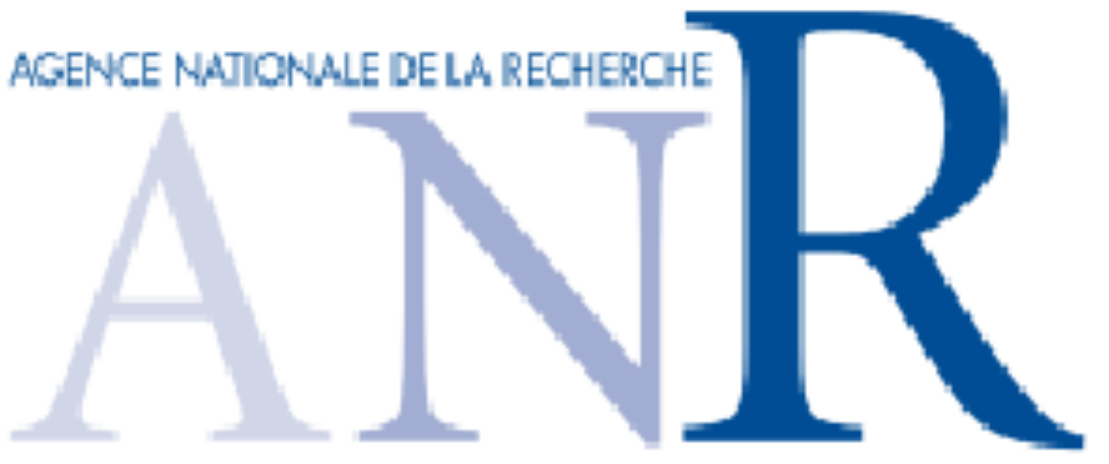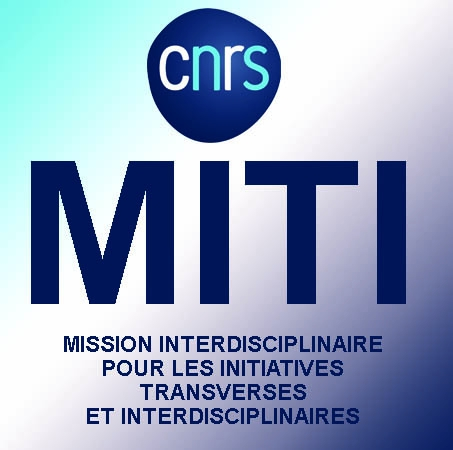



 Abstract: Metrological systems are precious for quantifying our physical world. However, is there anything to recognize physically complex patterns? Smells, scents, fragrances are as many semantic notions that are difficult to quantize, but so intuitive to classify for the brain. Far from our sensors standards, a sense is exclusively hardware that can identify physically very complex classes, undefinable stimuli, and unknown environments. “Sensation” suggests not to wait the chimeric time mankind will invent as many sensors as synthetic molecules, and proposes to study the ability for a device to recognize constitutionally complex smells, without software nor program. Thanks to hybrid micrometric devices that are both environmentally sensitive and able to interconnect at the fashion of dendrites and synapses of our neurons, the goal is to study their networking and stimulation to classify smells on a hedonic scale. Conducting-polymer based electrochemical devices will be, designed to mimic brain's behavior on the one hand, and on the other hand, materials will be selected based on their multi-chemo-specificity on the input layer of a many-layer system, integrated on less than 10 mm2. Thanks to our preliminary results on dendritic morphogenesis for organic electrochemical transistors, and multivariate data analysis of the versatile chemo-specificity for doped polymer semiconductors to recognize elementary gases, the aim for the mission is to use organic electronics as single technological node to manufacture a device that behaves like our nose in the project's horizon. As autonomous system in both data generation and management, the conception of such autonomous and non-vulnerable hardware is, first of all, a societal challenge, for acceptability of a trustworthy but more intrusive artificial intelligence (AI). | Start: 1.10.2022. ANR's support: 275 203 €.
Abstract: Metrological systems are precious for quantifying our physical world. However, is there anything to recognize physically complex patterns? Smells, scents, fragrances are as many semantic notions that are difficult to quantize, but so intuitive to classify for the brain. Far from our sensors standards, a sense is exclusively hardware that can identify physically very complex classes, undefinable stimuli, and unknown environments. “Sensation” suggests not to wait the chimeric time mankind will invent as many sensors as synthetic molecules, and proposes to study the ability for a device to recognize constitutionally complex smells, without software nor program. Thanks to hybrid micrometric devices that are both environmentally sensitive and able to interconnect at the fashion of dendrites and synapses of our neurons, the goal is to study their networking and stimulation to classify smells on a hedonic scale. Conducting-polymer based electrochemical devices will be, designed to mimic brain's behavior on the one hand, and on the other hand, materials will be selected based on their multi-chemo-specificity on the input layer of a many-layer system, integrated on less than 10 mm2. Thanks to our preliminary results on dendritic morphogenesis for organic electrochemical transistors, and multivariate data analysis of the versatile chemo-specificity for doped polymer semiconductors to recognize elementary gases, the aim for the mission is to use organic electronics as single technological node to manufacture a device that behaves like our nose in the project's horizon. As autonomous system in both data generation and management, the conception of such autonomous and non-vulnerable hardware is, first of all, a societal challenge, for acceptability of a trustworthy but more intrusive artificial intelligence (AI). | Start: 1.10.2022. ANR's support: 275 203 €.
Coordinator: Sébastien Pecqueur - 42 months - Participant: IEMN in Lille (FR)
 Abstract: Persistent organic pollutants (POPs) are a main source of toxic exposure for the population worldwide. To protect populations, fast/sensitive/handy/cheap detection tools for such chemicals is a real need for in situ assessment of POPs environmental pollution by regular monitoring of food/water resources. Even beyond, such tool would pave the way for a better understanding of the environmental fate of POPs and for better effectiveness of remediation methods applied in the field. Here, we ambition to set up a new smart biosensing technology to binary classify polluted samples by POPs level and their degradation products: POPs-containing analytes will systematically interface a specifically designed organic-electrochemical transistor (OECT) micro-array, labelled with large series of synthetic biological probes. Multivariate data analysis techniques will be used for POP-level identification, necessary to deeper machine learning analysis such as neural network algorithms. | Start: 1.4.2021. ANR's support: 529 603 €.
Abstract: Persistent organic pollutants (POPs) are a main source of toxic exposure for the population worldwide. To protect populations, fast/sensitive/handy/cheap detection tools for such chemicals is a real need for in situ assessment of POPs environmental pollution by regular monitoring of food/water resources. Even beyond, such tool would pave the way for a better understanding of the environmental fate of POPs and for better effectiveness of remediation methods applied in the field. Here, we ambition to set up a new smart biosensing technology to binary classify polluted samples by POPs level and their degradation products: POPs-containing analytes will systematically interface a specifically designed organic-electrochemical transistor (OECT) micro-array, labelled with large series of synthetic biological probes. Multivariate data analysis techniques will be used for POP-level identification, necessary to deeper machine learning analysis such as neural network algorithms. | Start: 1.4.2021. ANR's support: 529 603 €.
Coordinator: Jean-Christophe Rain. I am responsible for the "Sensor" work-package and participate as an organic electronic technologist. - 36 months - Participants: IEMN in Lille (FR), Hybrigenics Services and Génomique métabolique in Évry-Courcouronnes (FR)
IONOS - An iono-electronic neuromorphic interface for communication with living systems | funded by the European Research Council (ERC), under the 2017's (CoG) consolidator grant (external link).
Coordinator: Fabien Alibart - I was first recruited as post-doctoral researcher for nine months, and then I continued participating as organic electronic technologist.
 Abstract: La détection métallomique repose en général sur des méthodes d'analyses destructives ou rayonnantes, interférant avec le monitoring in situ des procédés catalytiques existant dans de nombreux micro-systèmes biologiques. L'approche « multi-capteurs » serait moins intrusive, à la condition que celle-ci déploie toute la fonctionnalité nécessaire à l'échelle des systèmes étudiés sans en perturber leur fonctionnement. L'initiative proposée vise à élaborer une plateforme multi-capteurs conductimétriques électro-polymérisés, et co-intégrant à l'échelle de chacun des capteurs des cages macromoléculaires spécifiques aux cations. L'approche originale capitalise à la fois sur un procédé de co-intégration électrochimique bottom-up de micro-capteurs ioniques validé pour des canaux jusqu'à 400 nm, et un mécanisme de détection cationique à la sélectivité validée en solution, afin de détecter des variations de plusieurs métaux lourds en temps réel jusqu'à l'échelle subcellulaire pour la toxicologie de nombreux systèmes vivants.
Abstract: La détection métallomique repose en général sur des méthodes d'analyses destructives ou rayonnantes, interférant avec le monitoring in situ des procédés catalytiques existant dans de nombreux micro-systèmes biologiques. L'approche « multi-capteurs » serait moins intrusive, à la condition que celle-ci déploie toute la fonctionnalité nécessaire à l'échelle des systèmes étudiés sans en perturber leur fonctionnement. L'initiative proposée vise à élaborer une plateforme multi-capteurs conductimétriques électro-polymérisés, et co-intégrant à l'échelle de chacun des capteurs des cages macromoléculaires spécifiques aux cations. L'approche originale capitalise à la fois sur un procédé de co-intégration électrochimique bottom-up de micro-capteurs ioniques validé pour des canaux jusqu'à 400 nm, et un mécanisme de détection cationique à la sélectivité validée en solution, afin de détecter des variations de plusieurs métaux lourds en temps réel jusqu'à l'échelle subcellulaire pour la toxicologie de nombreux systèmes vivants.
Une partie des résultats a été présentée à SPIC 2022. Une publication est en cours...
Coordinator: Sébastien Pecqueur - 22 months - Participants: IEMN in Lille (FR) and Laboratoire de Chimie de l'ENS Lyon in Lyon (FR)
RECORD-IT - Reservoir Computing with Real-time Data for future IT | funded by the European Commission under the Horizon 2020 program as a FET-Open research project (external link).
Coordinator: Zoran Konkoli - I participated as post-doctoral researcher for three years in the project.
OLIMPIA - Organic Optoelectronics integrated with living systems for neuroscience investigations and applications | funded by the European Commission under the FP7 program as an ITN initiative (external link).
Coordinator: Michele Muccini - I participated as a Marie-Curie Experienced Researcher fellow for 14 months in the project.
In addition, this activity benefits from the financial support of many more organisations, directly or in collaborations with other colleagues...
Specifically, the CNRS and the INSIS for my tenure position and their initial support (15k€), the IEMN for incubating our ideas internally (74.5k€ overall though the support of the "IoT make Sense" flagship and the Micro/Nano Systems Dept.), the University of Lille for financing one PhD student and the Region Haut-de-France for co-financing one PhD student. I am also deeply grateful to the ICAM Engineering School in Lille, the University of Monastir in Tunisia and the University of Lille for the support of their graduating master/engineer students and visiting doctoral students who contribute significantly to our work.
© 2019-2024 Sébastien Pecqueur